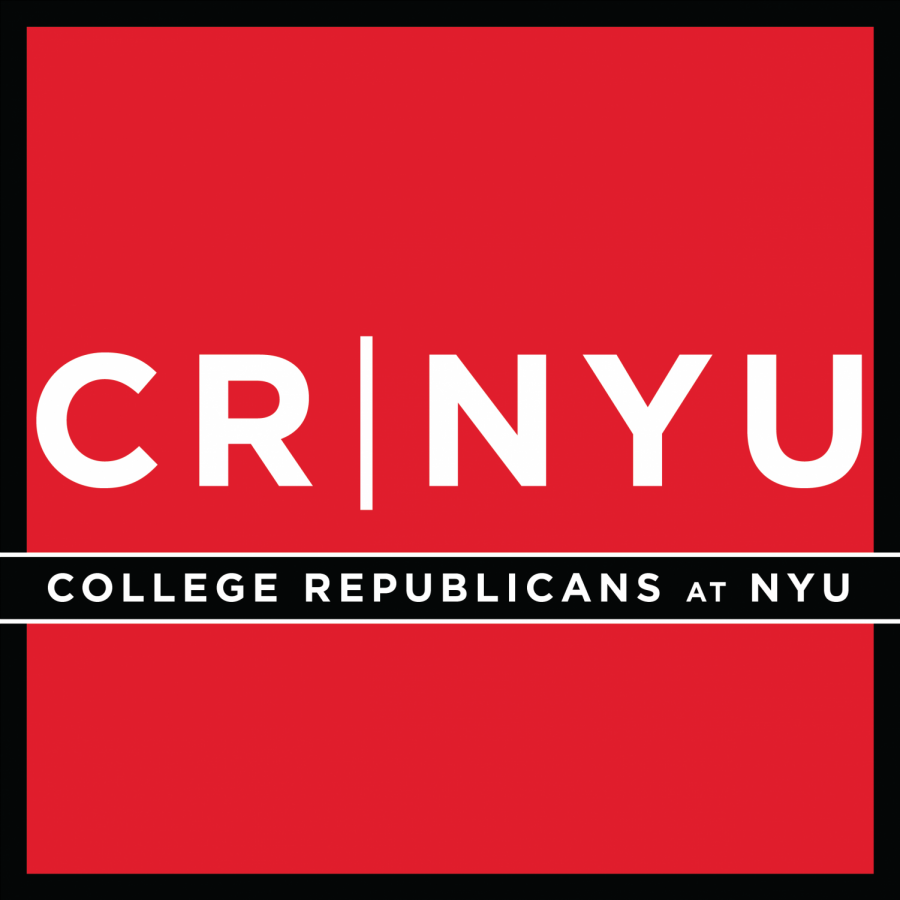NYU College Republicans Speak on Students for Carbon Dividends
The NYU College Republicans logo.
March 6, 2018
Late last month, 23 chapters of the College Republicans joined the Students for Carbon Dividends, a bipartisan student coalition including five environmental groups and six democratic groups calling for national legislation to fight climate change.
This is the first time College Republican groups are publicly advocating for national solutions to climate change, rather than maintaining skeptical views of the subject elected Republican officials have.
Students for Carbon Dividends aims to convince the GOP to support the Baker-Shultz Carbon Dividends plan by demonstrating that young voters are demanding for more policies to decrease climate change.
First introduced by the Climate Leadership Council in February 2017, this plan is based on four interdependent pillars: a gradually rising, revenue-neutral carbon tax, carbon dividend payments to all Americans, the phase-out of carbon regulations that are no longer necessary and border carbon adjustments to level the playing field for workers and companies.
The plan focuses on an expensive new tax on carbon pollution while limiting Environmental Protection Agency regulations, such as the Obama administration’s Clean Power Plan.
Whether NYU’s College Republicans will join this coalition remains uncertain.
“We haven’t been contacted by Students for Carbon Dividends and no one on the E-board has heard about them and their mission until now,” Vice President of the NYU College Republicans and CAS senior Xavier Malaussena said in a statement to WSN.
While NYUCR has not been approached by the organization, Malaussena said they are open to discussion about the goals of the group and the impacts of climate change.
“As such there hasn’t been any discussion about joining,” Malaussena said. “We would be interesting [sic] in talking with them and potentially co-hosting an event, but this isn’t something that has been on the radar. We would have to hear their offer specifically and we could help them present their mission to our members and other NYU students if they wanted to come here.”
Malaussena elaborated on his personal stance.
“I’d say a good summary is that climate change is occurring,” he said. “It’s man made to a significant extent, its future effects are very difficult to predict accurately, and any policy proposed to combat it has to be weighed by economic harm vs. effectiveness.”
Email Louise Choi at [email protected].















































































































































